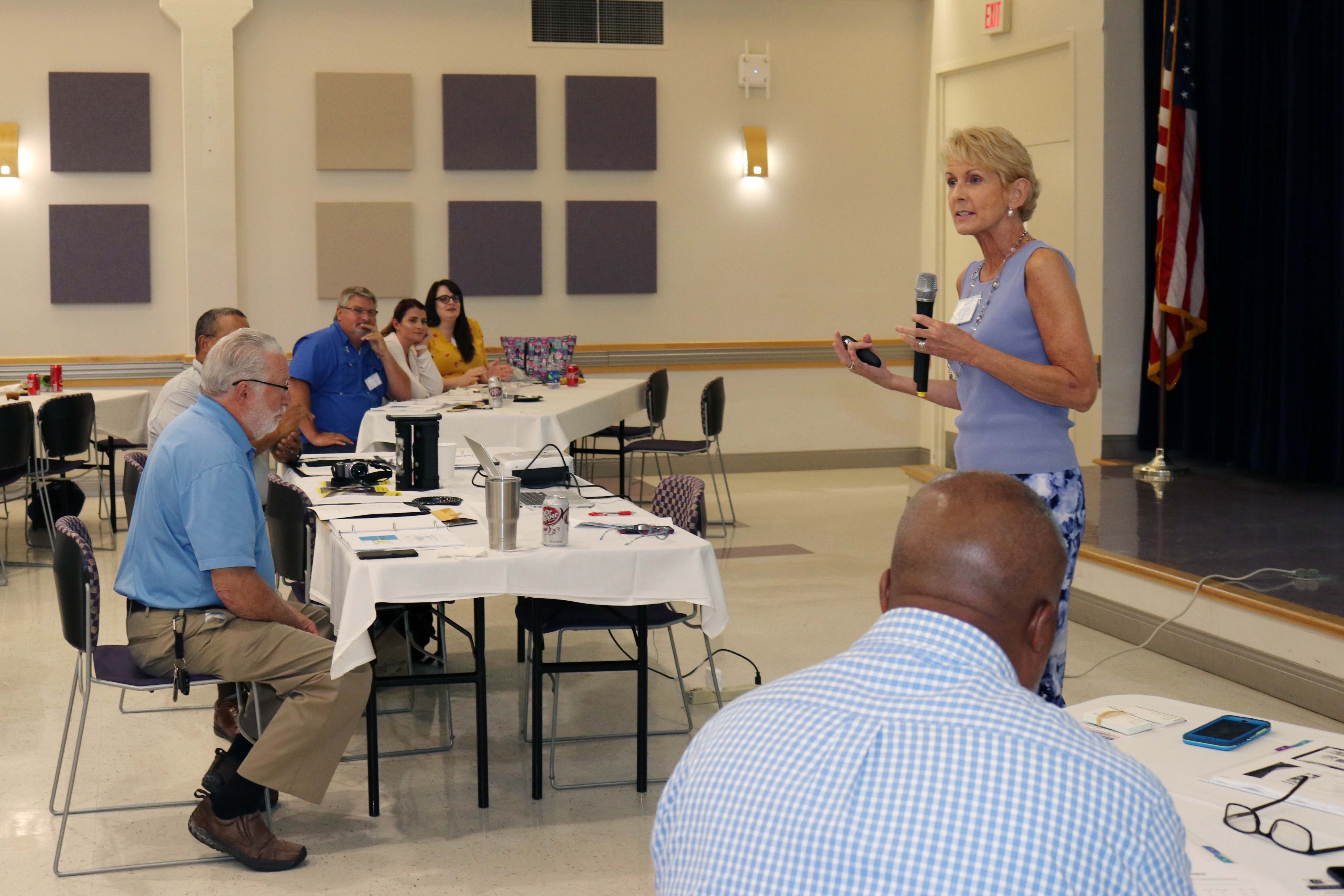Small businesses flock to ECU for 2019 Disaster Recovery Contracting Summit
Contractors from across North Carolina filled the Willis Building Auditorium at East Carolina University on Wednesday to learn how to better connect with local, state and federal agencies after a natural disaster.
The 2019 Disaster Recovery Contracting Summit – the first of its kind hosted by the Small Business and Technology Disaster Center at ECU – sought to demystify some of the obstacles standing in the way of small businesses trying to access post-disaster recovery opportunities. The event brought in contract officers, emergency leaders and subject matter experts to share their tools to prepare contractors for what happens during the recovery process.
While there are plenty of opportunities for contractors and small businesses to assist organizations after storms, hurricanes and other natural disasters, navigating the red tape around government contracts can be a barrier for some.
“We’ve had two major natural disasters in a three-year period,” said SBTDC at ECU Director Ariana Billingsley said of hurricanes Matthew and Florence. “If there’s one thing we’ve heard over and over it’s that there is a need for contractors to provide services and goods after a storm comes through.
“Often, there’s a shortage of contractors. That usually happens because they don’t know about the availability of work opportunities, don’t know how to access the opportunities they do hear about, or they don’t know how to respond to opportunities. This event answered all of those questions.”
More than 75 small businesses from Greensboro to Wilmington attended the event, including contractor Lamont Williams. Williams is the CEO of Stratcon Contracting Corp. based in Raleigh. After assisting rail-based freight transporter CSX after Hurricane Florence, Williams was interested in learning more about disaster recovery work.

Norma Houston, UNC-Chapel Hill School of Government faculty member and North Carolina Office of Recovery and Resiliency advisor, addresses the crowd at the 2019 Disaster Recovery Contracting Summit. The summit brought together 75 businesses from across North Carolina to share tools and procedures for working with local, state and federal agencies after natural disasters. (Photo by Matt Smith)
“We had a little experience working in the industry, but we wanted to open up the entire arena to us,” Williams said. “The summit showed us a wider range of opportunities available to businesses like ours after a natural disaster. It’s about getting on the front end of these things instead of being reactive.”
Billingsley said that for contractors like Williams, the processes of securing government contracts can be much different than the traditional bidding process.
“From registering at the right website to having the correct certifications, there’s a lot more that goes into it than just putting together a quote,” Billingsley said. “There are a lot more specifics that go into a proposal. Proposals require administrative time to put together, so you have to be intentional. Some contractors don’t know to do that, so we wanted to go over the different processes and make sure they had a chance to go after those types of contracts.”
Speakers at the event included representatives from FEMA, the N.C. Department of Transportation, the N.C. Division of Emergency Management, and the N.C. Office of Recovery and Resilience, among others.
Michael Sprayberry, director of the N.C. Division of Emergency Management, said now is the time for contractors to get ready for the next disaster.
“We’re going to be hit by more storms,” Sprayberry said. “It’s best to get your registration in place now so you can take advantage of these recovery operations and get your name in the hat. We want North Carolina companies to get the work that comes after a storm, but you have to understand how to register with the state. The businesses here at the summit will have a strong chance to be the ones helping our state recover after the next disaster.”
The SBTDC at ECU hopes to make the summit an annual event.
In 2018, Hurricane Florence caused $24 billion in total damages, including an estimated $13-18 billion in uninsured property damage, according to the National Oceanic and Atmospheric Administration.
ECU volunteers recorded 5,241 hours of recovery support, collecting more than 80,000 pounds of nonperishable foods and goods and $370,131 in financial and in-kind donations. The university assisted 65 small businesses during the recovery process in nine eastern North Carolina counties, totaling 150 hours of service.